China In Arms BOOKSTORE and GIFT SHOP!
Follow on Twitter
Subscribe: $5 Month/$50 Annual (unable to secure a subscription contact the bank for permission for Stripe deposits).
All free subscriptions are canceled after 30 days.
9 July 2024 (Tuesday)
Deterring China From Raping Taiwan
The Gap is Wide Open
By Wendell Minnick (Whiskey Mike) 顏文德
TAIPEI - I just finished a paper entitled “Deterrence Gap: Avoiding War in the Taiwan Strait,” by Jared M. McKinney and Peter Harris.
Download Here:
Published by the U.S. Army War College (1-5-2024), the authors drill down on past, present, and proposed deterrence formulas.
The paper did an outstanding job evaluating the past/present deterrence capabilities for Taiwan, but future predictions by the authors seem wildly out of synch with reality on the ground in Asia.
Japan is a no show in Taipei, the defense attaché office is manned by retired Japanese military officers largely lying about waiting for happy hour.
Compared to Japan’s skeleton crew, the U.S. military has roughly 800 personnel in Taipei and those assigned to the de facto U.S. Embassy (the American Institute in Taiwan/AIT).
The majority are temporary duty (TDY) rotations of a few months, BUT they are proactive in the corridors of Taiwan’s Ministry of National Defense and spread across the island (including the outer islands near China).
The Japanese do show up at Taiwan’s annual Han Kuang defense exercise, but they are largely and typically absent from most Taiwan military events. I should go to the Japanese red light district on Linsen Road near the Nanjing Road intersection to investigate further.
McKinney, in charge of the Taiwan Deterrence Research Task Force at the Air War College at Air University, Maxwell Air Force Base, Alabama (a task force for which I never knew existed), has a significant educational background: Ph.D from S. Rajaratnam School of International Studies at Nanyang Technology University, Singapore, and a Master’s degree at Peking University and the London School of Economics.
Taiwan is not mentioned, so it gives room to pause a bit while reading the paper (at least for myself after 25 years here).
And, as a defense correspondent for Jane’s and Defense News, covering defense exhibitions and air shows, I found it uncomfortable to read three noticeable sales pitches for the upcoming B-21 Raider stealth bomber, exempli gratia:
The US Air Force, however, is procuring a new long-range bomber, the B-21 Raider, and aiming for around 100 such aircraft to be in service by the beginning of the next decade. Given their long flying range, carrying capacity that is likely to be large, and stealthy characteristics, these bombers will be ideal for sinking invading ships in the Taiwan Strait, providing the Air Force with the “capacity to sink 300” People’s Liberation Army Navy ships “in 72 hours,” which would “provide convincing conventional military deterrence.”
I do not think Harris is promoting military armaments, as his position as a political science associate professor at Colorado State University makes him an unlikely candidate to push stealth bomber technology.
I like the idea of the B-21 coming to Taiwan’s rescue, but past papers, such as my article on Northrop’s scenario in a Taiwan conflict, entitled “B-21 Stealth Raider to SAVE Taiwan!: Magic Bullets?”, illustrates the insanity of using the Raider on bombing missions directly inside China.
Also, the authors do not mention the clock is ticking on Taiwan’s air defense.
At present, China is at Stage Three - Air Superiority. It is defined as the degree of dominance in an air battle that permits the conduct of operations by one side and its related land, sea and air forces at a given time and place without prohibitive interference by opposing air forces, such as the U.S. and/or Japan.
Stage Four - Air Supremacy is the highest level, where China holds complete control of the skies. It is defined as the degree of air superiority wherein Taiwan’s Air Force is incapable of effective interference.
Basically, Taiwan has Stage Three cancer and there is no Stage Five.
Even if B-21s were battle ready, China steals U.S. technology so fast it makes the road runner look slow. And China has a special school to defeat stealth technology.
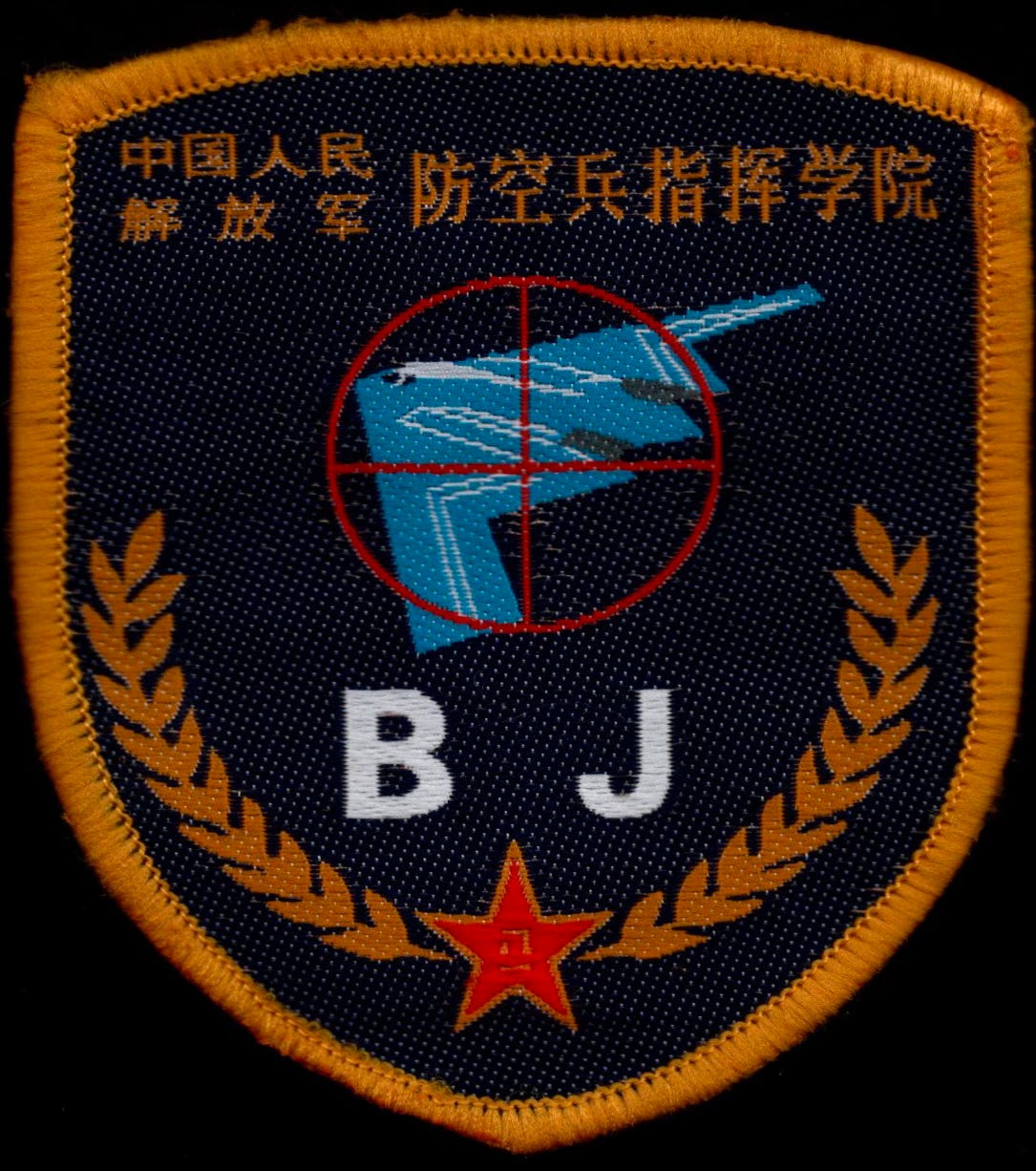
China’s stealth and anti-stealth capabilities are clearly illustrated in Chinese Air-Launched Weapons and Surveillance, Reconnaissance and Targeting Pods, Chinese Land-based Air Defense Systems, and Chinese Radars.
But let us not dwell totally on the lack of boots-on-the-ground experience by the authors.
In my humble opinion, after attending five Airshow China (Zhuhai) expos and dealing directly with Taiwan’s military on every base that exists on this rock for a quarter of a century there is one inescapable fact: Taiwan is royally fucked.
Here is the past/present and future according to the paper. The past/present will make you wonder why Taiwan does not surrender now. The future predictions are just fantasy. Taiwan will not reach any of the predicted goals. Japan neither. The U.S. will have many of them, but to attack the mainland of China is asking for proportional response on the U.S. mainland. And now with China’s hypersonic missile systems, conventional warheads on ballistic missiles, and ships and submarines that can strike Alaska, Hawaii, and Guam with land-attack cruise missiles, all the predictions made by the authors are naive.
CLICK TO ENLARGE:

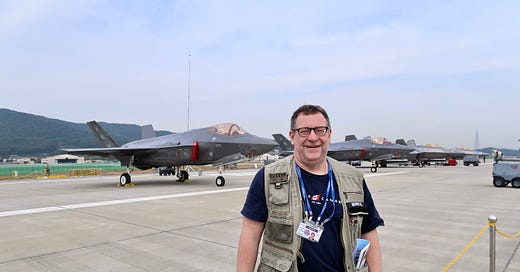


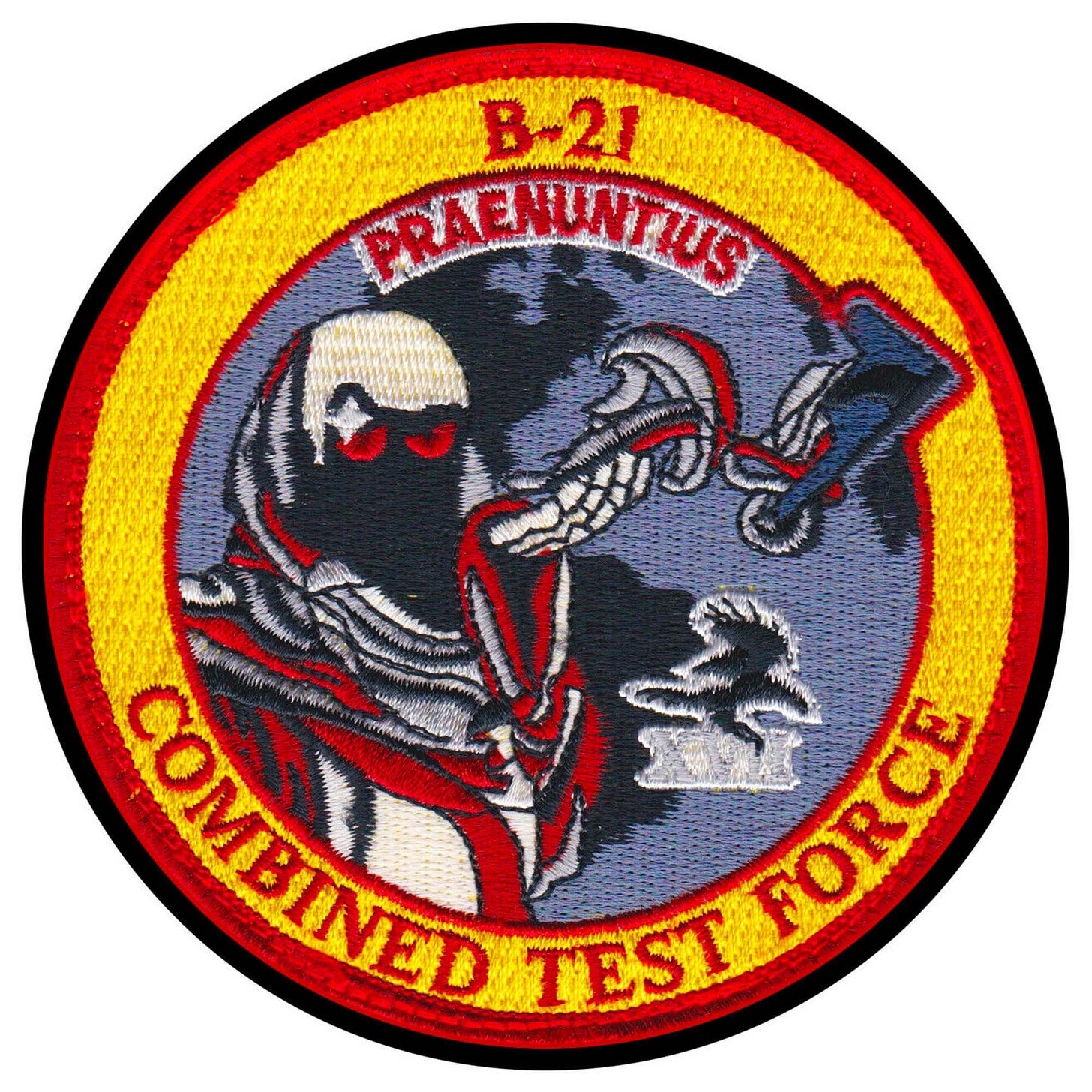
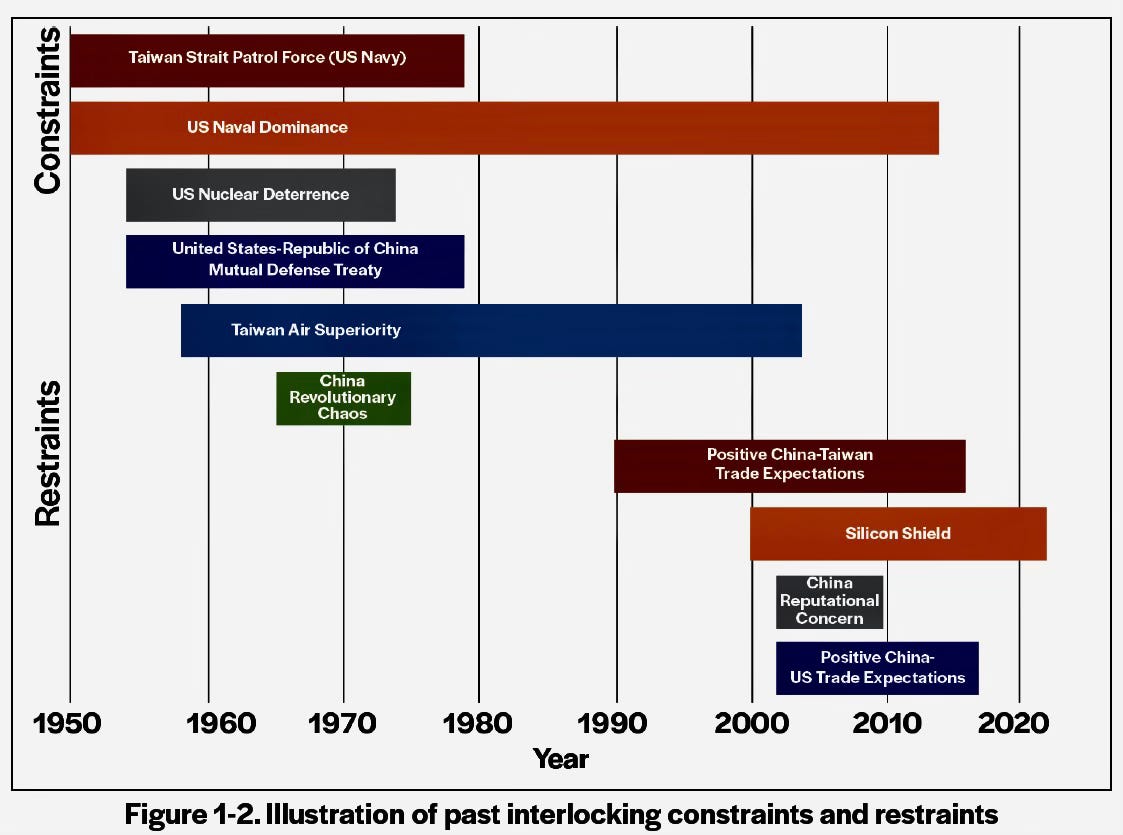
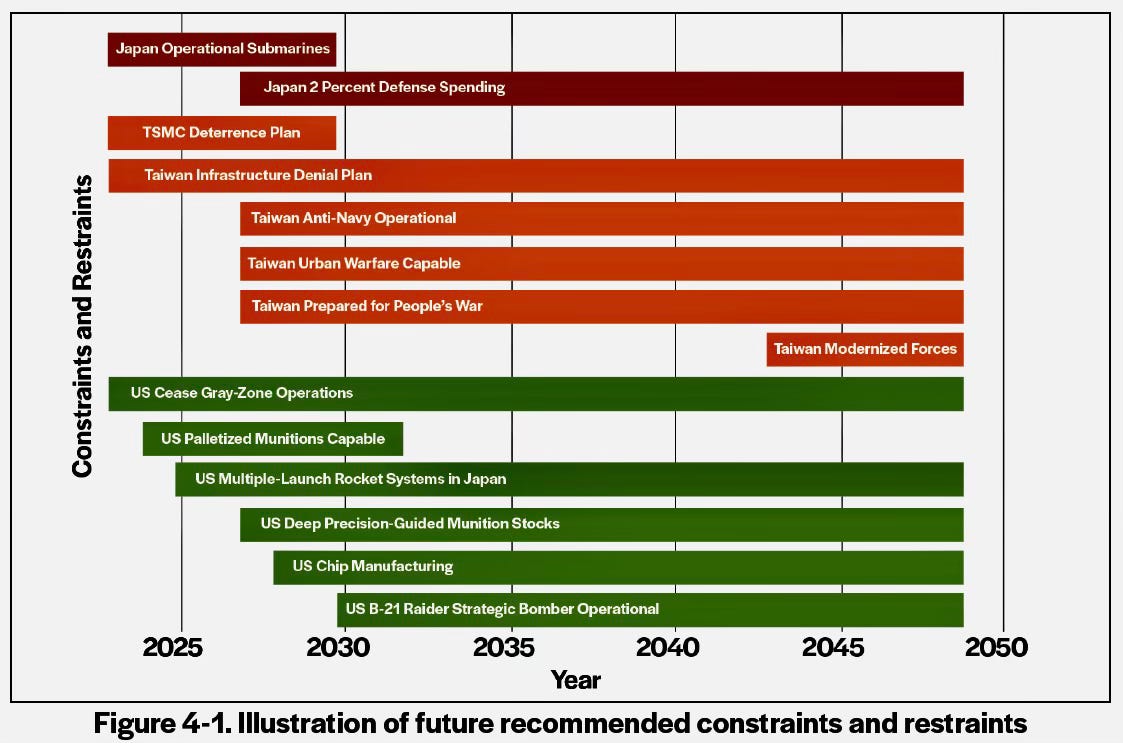

I never understand how come those "think tanks" always drags TSMC into the discussion as some major incentive for commies. I thought people with some knowledge about the history Chinese civil war would not even think this to be an issue.